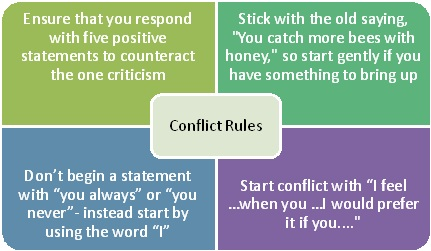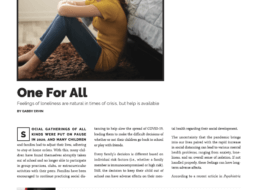- HOME
- PSYCH SERVICES
- BUSINESS & PERFORMANCE PSYCHOLOGY
- CLINICAL, COUPLES, & FAMILIES
- ADHD Treatment & Evaluation Services
- Anger Management
- Anxiety Treatment & Evaluation Services
- Borderline Personality Treatment Services
- Cognitive Behavioral Therapy (CBT) Self-Help
- Couples Counseling and Marital Therapy
- Consent for Psychological Services for Minors Post-Divorce
- Depression Treatment Services
- Infidelity Recovery
- Jacksonville Counseling and Psychology
- Military Psychology & Tricare
- Narcissistic Personality Treatment Services
- Online Counseling
- Psychoeducational Testing
- Psychological Testing and Assessment
- Psychotherapy & Counseling
- FORENSIC PSYCHOLOGY & EXPERT TESTIMONY
- LIFE COACHING & EXECUTIVE COACHING
- PSYCHOLOGICAL PUBLIC DISABILITY QUESTIONNAIRES (DBQ)
- ONLINE COURSES
- Our Partnership Begins When You Purchase an Online Course
- Get to Know Dr. D’Arienzo, Relationship Expert
- Florida Premarital Preparation Online Course
- Georgia Premarital Education Online Course
- TwogetherinTexas Premarital Online Course
- Tennessee Premarital Preparation Online Course
- Minnesota Premarital Education Course Online
- Oklahoma Premarital Counseling Online Course
- South Carolina Premarital Preparation Course
- West Virginia Premarital Education Course
- Online Marriage and Relationship Tune Up Course
- Florida DCF Certified Parent Education and Family Stabilization Online Course
- Georgia Qualified Parent Education and Family Stabilization Online Course
- Texas Qualified Parent Education and Family Stabilization Online Course
- High Conflict Co-Parenting Online Certificate Course (8 Hours)
- Online Anger Management Four Hour Course (Level 1)
- Online Anger Management Eight Hour Course (Level 2)
- Sexual Harassment Online Training
- MMPI/GUARD/LEO
- CPI Police and Public Safety Assessment
- G License Psychological Testing
- Online Psychological Testing for Armed Security Guards and Personal Protection Officers
- MMPI Texas Level III CSO and IV PPO Psychological (ONLINE)
- Requirement for Texas Security License Applicants: MMPI Evaluation
- Level 3 Security Guard New Mexico Online MMPI Psychological Evaluation
- TEAM
- SOCIAL MEDIA/BOOKS
D'Arienzo Psychology Blog
5 Tips for Effective Communication

Posted by: Dr. Justin D'Arienzo, Psy.D., ABPP
Communication is one of the most important skills in any field. Whether you’re a student, a professional, or just trying to get through your day, being able to communicate effectively can make a big difference. In this post, we’ll discuss five tips for effective communication. By following these tips, you can improve your communication skills and make a positive impact on your relationships, your career, and your life. Tip #1: Be clear and concise. When you’re communicating with someone, it’s important to be clear and concise. This means using language that is easy to understand and avoiding jargon or technical terms that the other person may not be familiar with. It also means getting to the point quickly and avoiding rambling.
Tip #2: Use active listening skills. Active listening is just as important as clear communication. When you’re listening to someone, it’s important to make eye contact, nod your head, and ask clarifying questions. This shows the other person that you’re paying attention and that you’re interested in what they have to say. Tip #3: Be respectful of others. Even if you disagree with someone, it’s important to be respectful of their opinion. This means avoiding personal attacks and name-calling. It also means listening to their point of view and trying to understand where they’re coming from. Find out more tips….
How to Spot a Narcissist

Posted by: Dr. Justin D'Arienzo, Psy.D., ABPP
How to spot a narcissist? Dr. D’Arienzo, Clinical Psychologist here. I am going to share five signs that indicated you might be dealing with a narcissist. Receiving criticism: Their fragile self-esteem can’t even handle constructive criticism. Feedback seems like a direct attack. Losing Control: When they lose control of situations and people around them, they feel powerless because it contradicts their grandiose image of themselves. Not being admired: They thrive on admiration and attention and when they are ignored and don’t get what they think they deserve they pout, and get frustrated and angry. Being exposed: They create a false persona to maintain their inflated self-image but when someone exposes their true self, vulnerabilities or manipulations, they go on the attack. Losing a competition: They think they are superior to others and when someone beats them, they feel inferior, so they react with rage, make excuses, and “file away” a serious resentment. Losing is personal to a narcissist. Obviously, we all have some of these traits, but if you’re narcissist, you would have most of these and to the extreme. If that’s you or your in a relationship with one, get professional help.
Establishing Limits on Kids Technology Use

Posted by: Dr. Justin D'Arienzo, Psy.D., ABPP
Establishing Limits on Kids Technology Use March 9, 2022 Why is establishing limits on kids technology use so important?! Well, kids little brains are more susceptible to social influence than adults. Starting around the age of 10 to 12, children’s brains undergo a major shift that causes them to seek social rewards – which means […]
The Eye of the Storm

Posted by: Dr. Justin D'Arienzo, Psy.D., ABPP
The Eye of the Storm January 26, 2022 A few weeks ago, I was in the kitchen and my daughter Julia – who is in the eleventh grade – entered and she was on the verge of tears. She said “Dad, I’m so overwhelmed about exams. I have so much to study and I think […]
A New You in 2022

Posted by: Dr. Justin D'Arienzo, Psy.D., ABPP
A New You in 2022 December 29, 2021 Did you know that only 8% of people maintain their New Year’s Resolutions from January all the way to December? Chances are you are one of the 92% hoping this year you’ll be the 8%. In the spirit of New Year’s resolutions, I wanted to share a […]
Teens and Young Adults Video Series #4

Posted by: Dr. Justin D'Arienzo, Psy.D., ABPP
The pandemic has created many feelings of uncertainty in our teenagers. Our Licensed Clinical Social Worker and Anxiety Specialist, Jenny Lehman, encourages teens and young adults that this will soon pass. She encourages viewers to look at every situation as a lesson and ask themselves what they can learn from this situation. Jenny Lehman also goes on to encourage viewers to guard themselves against content that brings them anxiety.
Anxiety Series for Teens #3

Posted by: Dr. Justin D'Arienzo, Psy.D., ABPP
Our anxiety specialist, Jenny Lehman, discusses a set of tools that teens can use to mitigate anxious feelings. One effective calming method is also known as belly breathing. By doing this breathing, you also reach the vagus nerve. The vagus nerve is also known as ‘nature’s calm button.’
Anxiety Series for Teens Video #2

Posted by: erica
Jenny Lehman is our Teen Anxiety Specialist and Licensed Clinical Social Worker. Her recent teen series discusses how we can link statements in our mind and cues in our body. She goes over three steps to connecting our mind and body. First, you locate where you are physically feeling anxiety, name the location, and remember what you were thinking about when you initially got an anxious feeling.
Loneliness in Children During the Pandemic: Our Clinical Psychologist Featured in Jacksonville Magazine

Posted by: Dr. Justin D'Arienzo, Psy.D., ABPP
Dr. D’Arienzo is a Board-Certified Clinical Psychologist at D’Arienzo Psychology. In March 2021 Jacksonville Magazine featured Dr. D’Arienzo in their article about the psychological effects of the pandemic on children. The pandemic has created lonely feelings in our school-aged children. Loneliness may lead to mental health issues down the road.
Psychology of Returning Our Children to School During the COVID-19 Pandemic?
Posted by: Dr. Justin D'Arienzo, Psy.D., ABPP
COVID-19 changed many aspects of our personal and professional lives. One way that COVID-19 changed our personal lives is that our children left brick-and-mortar schooling. As schools start to open back up, this article discusses the psychology of parents returning their children to school. Dr. D’Arienzo outlines how parents can make the best decision for their children.




